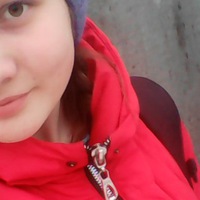
Напишите письмо англичанину, изучающему русский язык, о формах приветствия и ответах на них, существующих в русском языке. помогите пожалуйста!!!!
Ответы на вопрос

Привет! Рад помочь тебе написать письмо англичанину, изучающему русский язык. Вот примерный текст, который можно использовать:
Hi [Имя]!
I'm excited to introduce you to the different greetings in Russian and the ways to respond to them. In Russian, greetings can vary based on formality, time of day, and the level of familiarity with the person. Here’s a breakdown of some common forms:
1. Здравствуйте (Zdravstvuyte)
This is one of the most common and formal ways to say “Hello” in Russian. "Здравствуйте" is used in professional settings, when addressing older people, or when you’re meeting someone for the first time. If you’re familiar with someone but still want to be polite, you can say "Здравствуй" (Zdravstvuy) – this is a less formal but still respectful version of the greeting.
Responses: You can simply reply with "Здравствуйте" back or, if it’s someone you know, just say "Привет" (Hi).
2. Привет (Privet)
This is the informal way to say “Hi” in Russian. It’s used among friends, family members, and people you are close to or of similar age.
Responses: You can respond with "Привет" in return, or if you want to add warmth, you could say "Привет, как дела?" which means "Hi, how are you?"
3. Доброе утро / Добрый день / Добрый вечер
These phrases mean "Good morning" (Доброе утро), "Good afternoon" (Добрый день), and "Good evening" (Добрый вечер). They are often used when greeting people at different times of the day.
Responses: The usual response is simply to repeat the same phrase back. For example:
- "Доброе утро!" – "Доброе утро!"
- "Добрый день!" – "Добрый день!"
4. Как дела? (Kak dela?)
This question means "How are you?" It’s a common way to start a conversation, especially if you’re talking to someone familiar. Depending on the level of formality, you may hear variations like "Как поживаете?" which is a more formal version.
Responses: There are many possible responses here:
- "Хорошо, спасибо" (Khorosho, spasibo) – "Good, thank you."
- "Неплохо" (Neplokho) – "Not bad."
- "Всё отлично" (Vsyo otlichno) – "Everything’s great."
You can also add, "А у тебя?" (A u tebya?) if you're talking informally, or "А у вас?" (A u vas?) formally, which means "And you?"
5. Давно не виделись! (Davno ne videlis’)
This phrase means “Long time no see!” and is used when you meet someone after a long time. It’s informal and friendly.
Responses: You can respond with a similar phrase like "Да, давно!" ("Yes, it’s been a while!") or simply smile and agree.
Tips on Tone and Context:
In Russian, choosing the right greeting depends on context and the level of familiarity. Generally, more formal greetings show respect, while informal ones convey warmth and friendliness. Russians often appreciate politeness and may feel closer to people who make an effort to use greetings correctly.
I hope this helps you understand Russian greetings better. Feel free to ask more if you’re curious!
Best of luck, [Ваше Имя]
Похожие вопросы









Топ вопросов за вчера в категории Русский язык









Последние заданные вопросы в категории Русский язык

-
Математика
-
Литература
-
Алгебра
-
Русский язык
-
Геометрия
-
Английский язык
-
Химия
-
Физика
-
Биология
-
Другие предметы
-
История
-
Обществознание
-
Окружающий мир
-
География
-
Українська мова
-
Информатика
-
Українська література
-
Қазақ тiлi
-
Экономика
-
Музыка
-
Право
-
Беларуская мова
-
Французский язык
-
Немецкий язык
-
МХК
-
ОБЖ
-
Психология
-
Физкультура и спорт
-
Астрономия
-
Кыргыз тили
-
Оʻzbek tili















